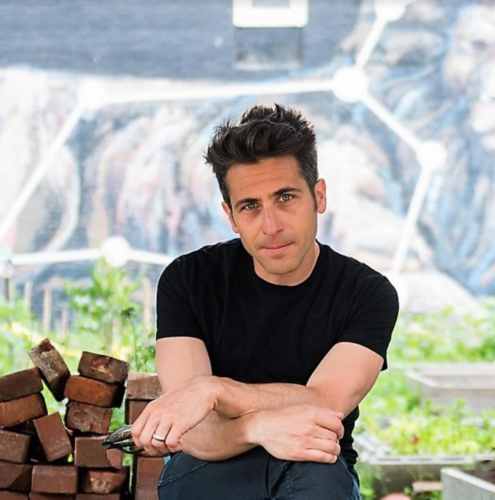Cross a thin ribbon of sky which is, of course, the river. A child pits a bowl of olives with the bone-handled paring knife. Its blade is whetted too thin; it holds everyone’s reflection but her own. She is eight. Off with your finger she says to no one, then lops off a tip, pinches its skin, and extracts with her teeth the olive pit, which she spits into another bowl. Three bowls, in all: one for what is hard, one for what is soft, one for what remains untouched. From the hook she has lifted, draped along her neck, and tied at the small hollow of her back the night. Clock, upon clock, upon clock. Still, who is prepared for this moment? If you want to hear better, close your eyes, she says. If you want to hear better, cover your ears. Each olive in the yellow bowl is black. Lining the river bridge are houses identical to this house; windows on one side hold the world, but windows on the other side hold the world. She counts sparrows on ratlines. When you stop dreaming of ghosts, she explains, then you have become a ghost. When she dreams, the olives in her dreams are green.
Myth
Feature Date
- September 4, 2024
Series
Selected By
Share This Poem
Print This Poem
Copyright © 2024 by Joseph J. Capista.
All rights reserved.
Reproduced by Poetry Daily with permission.

58.2
Vermillion, South Dakota
University of South Dakota
Editor-in-Chief
Lee Ann Roripaugh
Managing Editor
duncan b. barlow
South Dakota Review is committed to cultural and aesthetic diversity. First and foremost, we seek to publish exciting and compelling work that reflects the full spectrum of the contemporary literary arts. Since its inception in 1963, South Dakota Reviewhas maintained a tradition of supporting work by contemporary writers writing from or about the American West. We hope to retain this unique flavor through particularly welcoming works by American Indian writers, writers addressing the complexities and contradictions of the “New West”, and writers exploring themes of landscape, place, and/or eco-criticism in surprising and innovative ways. At the same time, we’d like to set these ideas and themes in dialogue with and within the context of larger global literary communities. South Dakota Review publishes fiction, poetry, essays (and mixed/hybrid-genre work), as well as literary reviews, interviews, and translations.
Poetry Daily Depends on You
With your support, we make reading the best contemporary poetry a treasured daily experience. Consider a contribution today.




